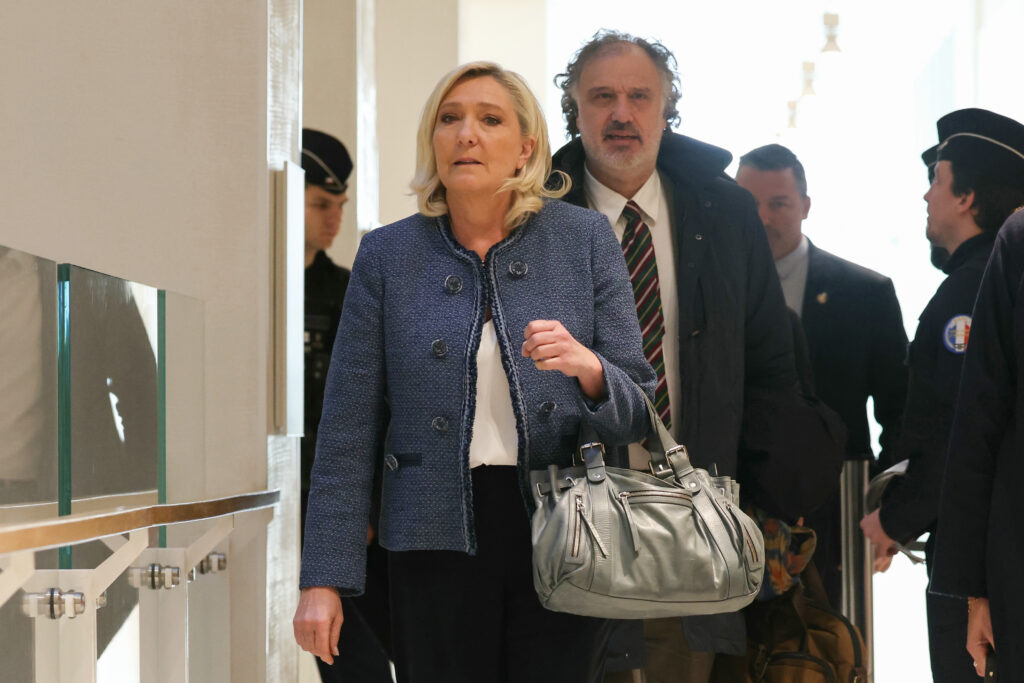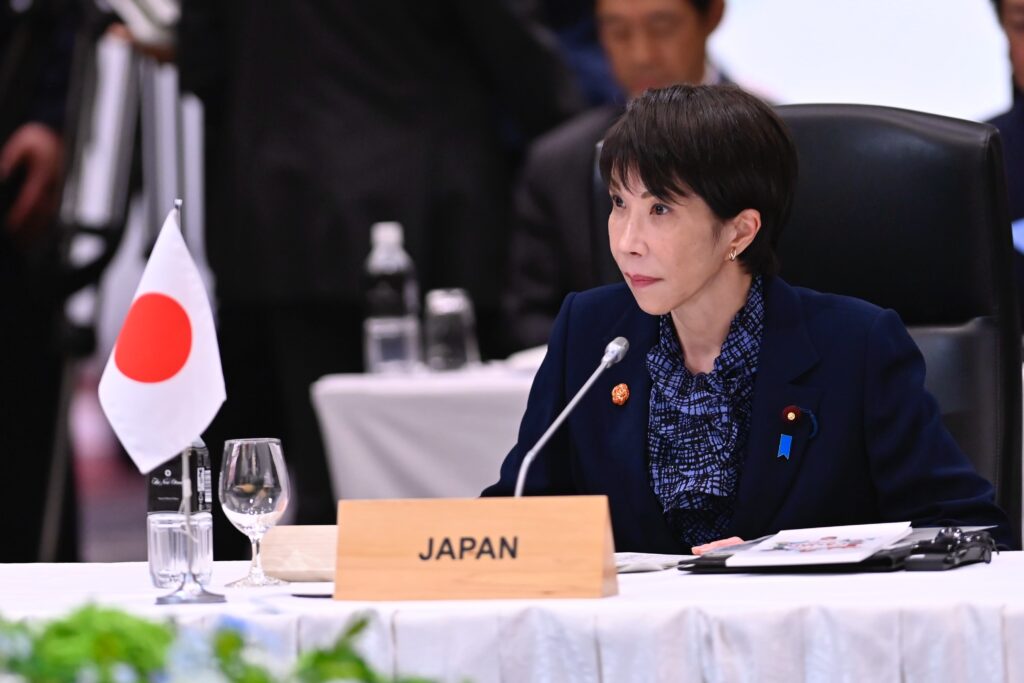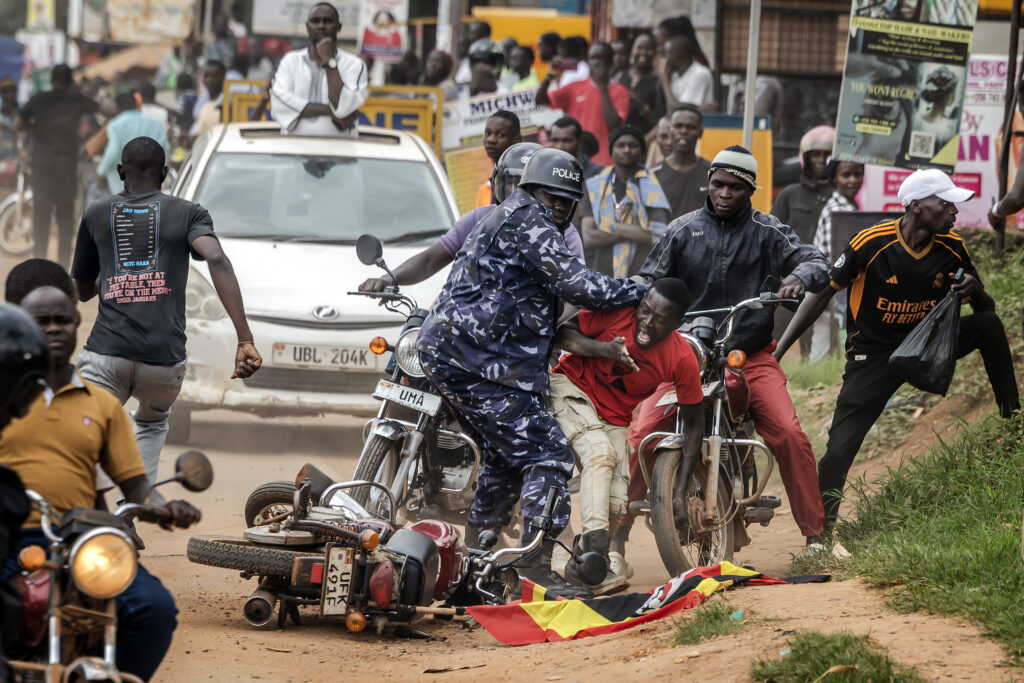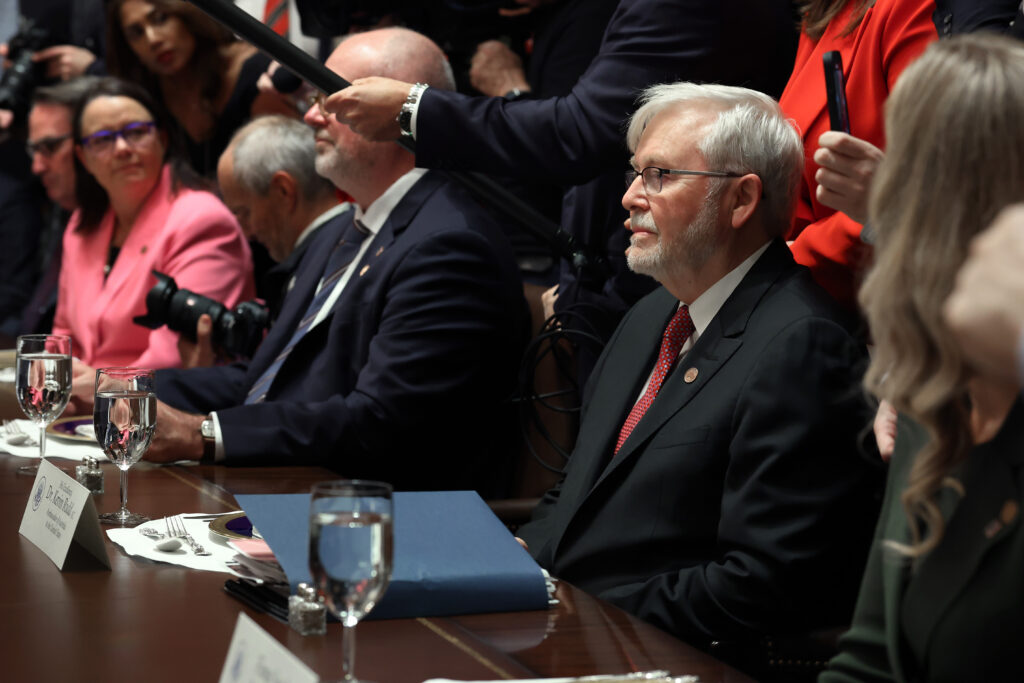Ouverture du procès en appel du RN, Le Pen joue son avenir présidentiel
Le procès en appel de Marine Le Pen, du Rassemblement national et de onze autres prévenus s’ouvre mardi à Paris: la cheffe de file de l’extrême droite française joue son éligibilité pour l’élection présidentielle de 2027 et, plus généralement, son avenir politique.L’audience, présidée par Michèle Agi, doit débuter à 13H30. Le procès doit se tenir théoriquement jusqu’au 11 février dans le palais de justice historique au cœur de la capitale, avant une décision attendue à l’été.La triple candidate malheureuse à l’Elysée a été condamnée pour détournement de fonds publics le 31 mars 2025 par le tribunal correctionnel de Paris à quatre ans d’emprisonnement dont deux ferme sous bracelet électronique, 100.000 euros d’amende et, surtout, cinq ans d’inéligibilité avec exécution provisoire, c’est-à-dire immédiate, qui l’empêche à date de concourir à la présidentielle – ou, en cas de dissolution, à sa propre succession dans la 11e circonscription du Pas-de-Calais.Les juges de première instance l’ont reconnue coupable d’avoir mis en place un “système” entre 2004 et 2016 de captation des enveloppes versées par le Parlement européen aux eurodéputés, destinées à rémunérer leurs assistants dans le cadre de leurs fonctions à Bruxelles et Strasbourg.Pour l’accusation – qui sera représentée devant la cour d’appel par Thierry Ramonatxo et Stéphane Madoz-Blanchet – et le Parlement européen, partie civile, lesdits assistants travaillaient en réalité pour le seul parti Front national (FN, devenu RN) ou leurs dirigeants.Le tribunal correctionnel a établi le préjudice à 3,2 millions d’euros, une fois déduit 1,1 million d’euros déjà remboursé par une partie des prévenus – ils étaient 25 en première instance, douze ont renoncé à faire appel malgré leur condamnation, dont la propre sœur de Marine Le Pen, Yann Le Pen.Le maire de Perpignan, Louis Aliot, le député RN Julien Odoul, l’eurodéputé Nicolas Bay ou Bruno Gollnisch seront en revanche à nouveau sur le banc des prévenus.- Bardella “meilleur président” -“J’espère pouvoir convaincre les magistrats de mon innocence”, a rappelé Marine Le Pen lundi en marge des vœux à la presse de Jordan Bardella, estimant qu’il n’y avait qu'”un seul axe de défense: dire la vérité, c’est la stratégie qui est la mienne, comme je l’ai fait en première instance, en espérant être mieux entendue”.Mais, assistée de son conseil historique, Me Rodolphe Bosselut, et d’une nouvelle avocate, Me Sandra Chirac-Kollarik, la patronne du groupe RN à l’Assemblée pourrait davantage insister sur sa “non-intentionnalité” de commettre les faits qui lui sont reprochés plutôt qu’une dénégation en bloc, parfois perçue comme une “défense de rupture”, telle que plaidée en première instance, selon plusieurs de ses proches.Si Marine Le Pen n’a pas abandonné l’espoir d’être relaxée, une déclaration de culpabilité n’obérerait pas sa possibilité de concourir à la présidentielle de 2027 mais à une double condition: qu’une éventuelle peine d’inéligibilité soit inférieure à deux ans et que les magistrats renoncent à la condamner au port d’un bracelet électronique, perçu comme incompatible avec la possibilité de mener une campagne.Elle a quoi qu’il en soit indiqué que la seule décision de la cour d’appel déterminera son avenir, sans attendre une éventuelle décision de la Cour de cassation – bien que cette dernière entende se prononcer, si elle devait être saisie, avant l’échéance présidentielle.Neuf mois après sa condamnation, Marine Le Pen a déjà vu son image se dégrader dans l’opinion, l’idée d’une candidature de substitution de Jordan Bardella à l’Elysée s’étant peu à peu imposée comme la plus probable.Dans une étude Verian pour Le Monde et L’Hémicycle parue dimanche, 49% des Français estiment que, des deux leaders d’extrême droite, c’est le président du RN qui a “le plus de chances de remporter la présidentielle”, contre 16% pour la fille de Jean-Marie Le Pen. De même que M. Bardella ferait “un meilleur président de la République” que sa mentor pour 30% des personnes interrogées, alors que 22% pensent le contraire.Qu’importe: cet automne, Marine Le Pen avait pris la peine de rappeler qu’il était “sûr et certain” qu’elle brigue à nouveau l’Elysée “si elle peut être candidate”. Tout en reconnaissant que, à défaut, “Jordan Bardella peut gagner à (sa) place”.






